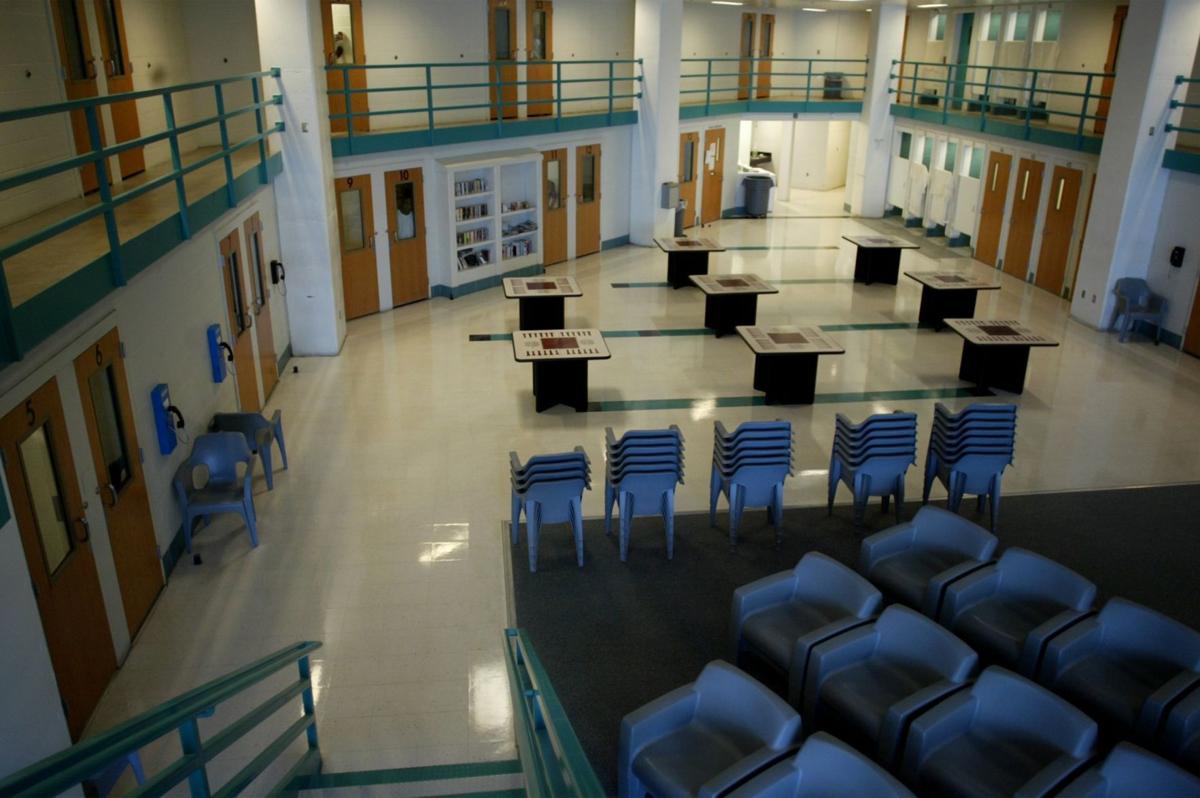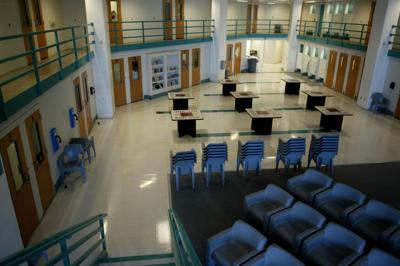Stephen Reynolds was standing up for the people of ├█ª┐┤½├¢ County, particularly those who face financial difficulties.
It was January 2018 and the head public defender in the county asked the circuit court to address a problem that had been building for more than a decade. Defendants in the county who qualified for public defender services when they were charged with a crime didnÔÇÖt have proper access to the legal representation the Sixth Amendment of the U.S. Constitution requires them to have.
ThatÔÇÖs because for a decade or longer, Missouri has had a public defender crisis. The state has the second-lowest funded public defenderÔÇÖs office in the country, and the result, highlighted most recently by a Brennan Center report, is that people waste away in jail mostly because public defenders have such ridiculous caseloads that they canÔÇÖt get to all the people who deserve and qualify for their services.
People are also reading…
Meanwhile, public defenders put their law licenses in jeopardy nearly every day. They know they are not fulfilling their ethical obligations to each individual client by providing them the proper representation, but if they refuse cases, the courts will discipline them.
It is literally a constitutional crisis.
Reynolds sought relief. Under a law passed by the Missouri Legislature to address the crisis, a public defenderÔÇÖs office can request a conference with the judges and the prosecutor in the circuit to seek a solution. ThatÔÇÖs what Reynolds did. He made his case, showing that nearly all of the public defenders in the county have caseloads that are more than twice as high as a standard set by one of the many studies of this persistent problem. Reynolds sought a wait list as well as help from private attorneys appointed by the court to take some of the cases.
The judges agreed with him.
Then-Prosecuting Attorney Robert McCulloch stood in the way.
In a letter to then-Presiding Judge Douglas Beach, McCulloch took issue with ReynoldsÔÇÖ request for help, accusing the office of ÔÇ£creating a crisis by refusing to do their sworn duty ÔÇĞ .ÔÇØ
Beach disagreed. He issued an order providing relief for the defendants in the county who qualified for public defender services. McCulloch appealed the order, which delayed the help.
Then McCulloch lost the election last year to Wesley Bell, a former public defender and municipal judge who had a different philosophy about the importance of protecting the civil rights of poor defendants . Bell withdrew the appeal of BeachÔÇÖs order.
Then Beach retired.
Now Reynolds is back. In late October, he filed a new motion, seeking relief from the new presiding judge of the court, Judge Gloria Reno.
HeÔÇÖs likely going to get it.
ÔÇ£We have a responsibility to make sure that every defendant who appears in front of us has effective representation,ÔÇØ Reno said in an interview. ÔÇ£We have a duty to act.ÔÇØ
In fact, the circuit courts already did. This summer the judges that allows them to appoint private attorneys who have been properly trained to handle some of the overflow of public defender cases. The attorneys must handle the cases pro bono but can be reimbursed for certain legal expenses.
Reynolds now hopes the court reissues an order allowing him to develop a wait list of defendants who have been released from jail and face lower-level felonies, such as stealing or nonviolent drug cases. Then the private attorneys can be appointed by the court to handle some of the wait-list cases.
ÔÇ£In a perfect world, there would be no wait list,ÔÇØ Reynolds said.
Of course, in a perfect world, state legislators would understand that they undermine the entire basis of the criminal justice system when they provide funding for one end of the system ÔÇö prosecutors ÔÇö but not the other side, public defenders.
It creates a dichotomy, and as in most situations in the criminal justice system, people without money lose. They wait in jail because they canÔÇÖt afford bail, before theyÔÇÖve been convicted of anything. If theyÔÇÖre lucky, they get 5 minutes of face time with a public defender who has to move on quickly to his or her 300 or 400 other cases.
The best solution here is for Missouri to properly fund its constitutionally necessary public defender system so that the civil rights of its most vulnerable citizens will be protected.
But Reno knows thatÔÇÖs not going to happen.
ÔÇ£The chances of us getting the Legislature to give us the proper funding for the public defenders system are slim and none,ÔÇØ she says.
So the criminal justice system in ├█ª┐┤½├¢ County is taking matters into its own hands.










